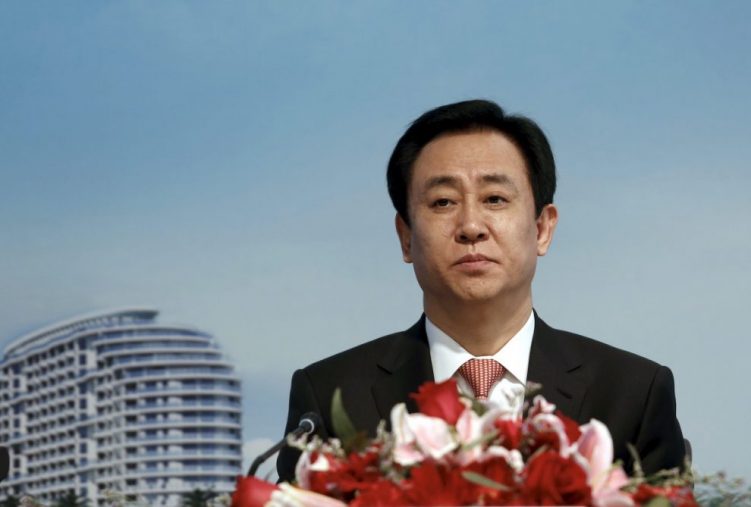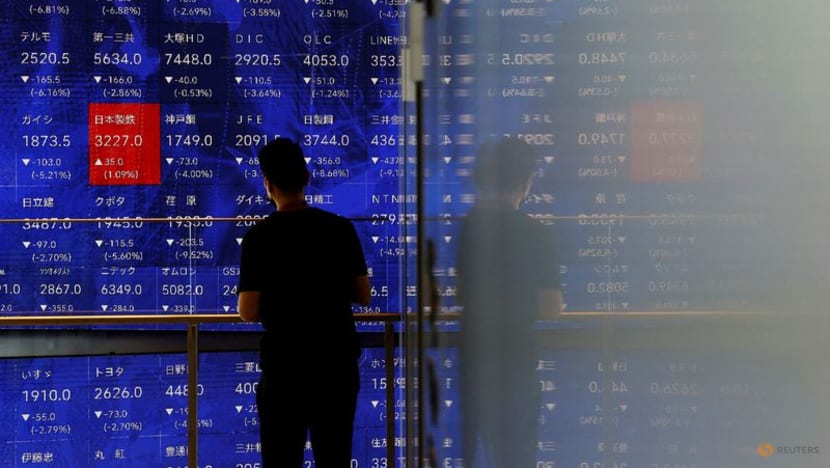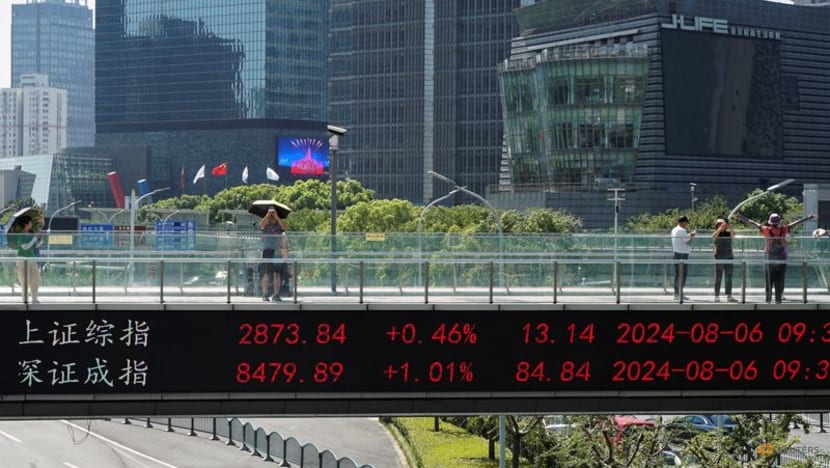Unwind of massive yen-funded carry has room to go, analysts say
Previous
FILE PHOTO: A man stands next to an electronic stock quotation board inside a building in Tokyo, Japan August 2, 2024. REUTERS/Issei Kato/File Photo
People take pictures on an overpass with a display of stock information in front of buildings in the Lujiazui financial district in Shanghai, China August 6, 2024. REUTERS/Nicoco Chan/ File Photo
FILE PHOTO: A man stands next to an electronic stock quotation board inside a building in Tokyo, Japan August 2, 2024. REUTERS/Issei Kato/File Photo
People take pictures on an overpass with a display of stock information in front of buildings in the Lujiazui financial district in Shanghai, China August 6, 2024. REUTERS/Nicoco Chan/ File Photo
FILE PHOTO: A man stands next to an electronic stock quotation board inside a building in Tokyo, Japan August 2, 2024. REUTERS/Issei Kato/File Photo
Next
06 Aug 2024 09:39PM (Updated: 07 Aug 2024 02:27AM)
BookmarkShare
NEW YORK : An epic unwinding of the yen-funded carry trade that has reverberated through global markets may have further to go, analysts said on Tuesday.
Days of havoc in global markets have analysts rushing to calculate the size of a global carry trade in which investors have borrowed money from economies with low interest rates, such as Japan or Switzerland, to fund investments in higher-yielding assets elsewhere.
The strategy, which kept money flowing into global risk assets for years, was shaken after the Bank of Japan raised interest rates last week, forcing some investors to abandon the trade as the yen surged higher. The resulting unwind sparked huge losses in global stock markets and saw Japan’s Nikkei notch its worst day since 1987.
"I’d guess the carry trade is only about 50 per cent unwound,” wrote James Malcolm, a UBS Japan macro strategist based in London, in a Tuesday note to clients.
Malcolm estimates the dollar-yen carry trade grew to at least $500 billion at its peak. He calculated that some $200 billion of the carry trade has been unwound over the last two to three weeks.
“How much the carry trade could unwind depends not so much on the level of the interest rate differential but the change in the interest rate differential,” he said. Comparing the current move with the carry trade unwind of 1998 suggests more unwinds could be ahead, he said.










:max_bytes(150000):strip_icc():format(webp)/GettyImages-2165323179-8451a4d333cb45ff95c8559ec4650c21.jpg)